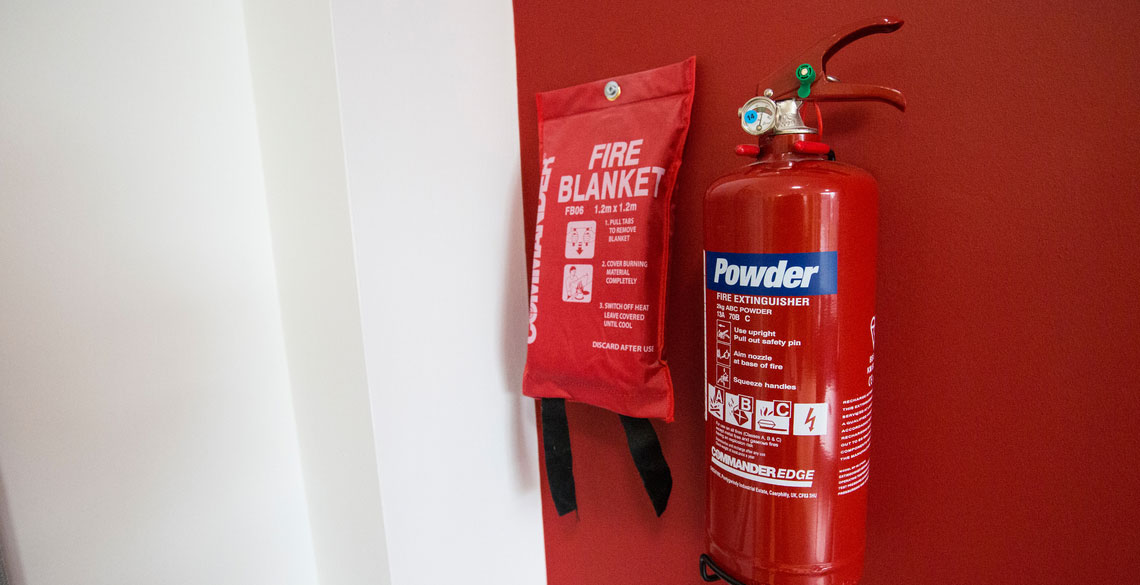Fire Safety

The most significant hazard for students living in residences is fire. You should familiarise yourself with the fire action sign in your room as soon as you arrive.
Fire alarm testing
The fire alarms are tested weekly in each building in order for us to know that they are working properly. The fire alarm testing schedule for all residences can be found below.
During the test, the alarm will sound for a few seconds – there is no requirement for you to evacuate at this time.
Test Schedule
If the alarm sounds outside of the times stated, you must evacuate the building. If the alarm continuously sounds, even within your test time, you must evacuate the building - do not stop to collect any personal items, make your way to the nearest assembly point and do not re-enter the building unless you have been told to do so.
If you discover a fire, please activate the alarm immediately by breaking the glass, evacuate the building and then ring 999.
Fire alarms
The Fire Service and the University work together to reduce the number of false alarms taking place on the campus.
False alarms can cause you and your fellow residents great inconvenience, particularly if they occur in the middle of the night. More seriously, when the Fire Service is dispatched to your residence, they are not available to attend a genuine emergency elsewhere.
Even if you know you have caused the activation and believe there is no danger, you must still evacuate the building.
Breaking the glass of the fire alarm call point when there is no fire is classed as a malicious fire alarm activation. Anyone who is identified as having done so is likely to be fined and face disciplinary action which could lead to being excluded from residences. In the event of this occurring, the resident will also be charged the full cost of checking equipment and repair or replacement. Additionally, this is a criminal offence and you could be liable to prosecution.
The fire service can charge or prosecute individuals where they feel the alarms have been activated through malicious or neglectful actions. Repeat offenders could face a fine up to £6,000 and up to 6 months imprisonment.
Fire Safety Inspections
During their scheduled patch visits, your Residence Assistants (RAs) will undertake a visual inspection of the fire safety equipment in the bedroom area of your accommodation block and communal areas of your flat/house.
Any issues identified during these visits will be reported to the maintenance team for rectification.
Keep an eye on your emails for confirmation of when they will be popping in to see you and to undertake these visual checks.



